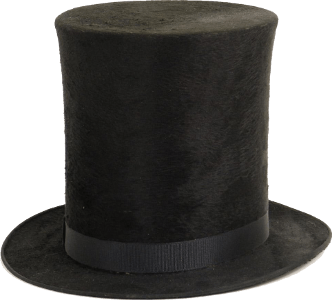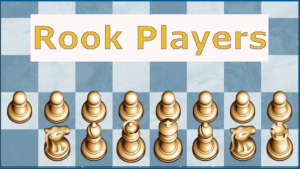
Honest Abe
Honest Abe - Chess Player
Although the documentation is rather sparce and anecdotal, Abraham Lincoln was known to have been a chess player. Below are a few of the instances where Chess crossed path with Mr. Lincoln.

"The Every-day Life of Abraham Lincoln"
by Francis Fisher Browne 1913:
"Mr. G.W. Harris, whose first meeting with Lincoln in a log school-house has been previously described in these pages, subsequently became a clerk in Lincoln's law- office at Springfield, and furnishes some excellent reminiscences of that interesting period.... Mr. Lincoln was fond of playing chess and checkers, and usually acted cautiously upon the defensive until the game had reached a stage where aggressive movements were clearly justified."
"Lincoln and His World"
by Richard Lawrence Miller, 2013:
"A contemporary report said he 'plays a very fair game, but not a first rate one ... While playing chess, Mr. Lincoln seems to be continually thinking of something else. Those who have played him say he plays as if it were but a mechanical pastime to occupy his hands while his mind is busy with some other subject... He plays what chess players call a "safe game." Rarely attacking, he is content to let his opponent attack while he concentrates all his energies in the defense -- awaiting the opportunity of dashing in at a weak point, or the expenditure of his adversary's strength... He is the model of a chess general.'"
"Abraham Lincoln: A Life"
by Michael Burlingame, 2013
"When Hatch recommended Nicolay (as a personal secretary), Lincoln found it easy to accept the advice, for he regarded the young man as 'entirely trustworthy' and had often conversed and played chess with him in Hatch's office, which served as an informal Republican headquarters."
"Abraham Lincoln, the War Years"
by Carl Sandburg, 1939
"One of them was a gleaming, vital creature, Katherine Jane Chase, known as Kate and born under strange stars. She had grown to be his chum and helper, playing chess with him, walking with him to the office, telling him what she got from a newly read book..."
Katherine Jane Chase was the daughter of Licoln's Secretary of the Treasury, Salmon P. Chase. Ofter called the "American Queen," she worked surreptiously behind Lincoln's back to win the 1864 Republican nomination for her father. However, in the interval the 21 year old toast of Washington D.C. and Honest Abe were chess partners.
"The Story-life of Lincoln"
by By Wayne Whipple, 1908
"An old friend of Mr. Lincoln once related to me another of his stories which shows not a little of his character. This gentleman was conversing with the President at a time during the War when things looked very dark. On taking leave, he asked the President what he should say to their friends in Kentucky—what cheering news he could give them of him. Mr. Lincoln replied:
'That reminds me of a man who prided himself greatly on his game of chess, having seldom been beaten. He heard of a machine called the "Automaton Chess Player," which was beating every one who played against it. So he went to try his skill with the machine. He lost the first game, so with the second, and the third. Then, rising in astonishment from his seat, he walked around the machine and looked at it a few minutes. Then, stopping and pointing at it, he exclaimed, 'There is a man in there.'
"Tell my friends," said Mr. Lincoln, "there is a man in here!"
The chess automaton, the Turk, had been destroyed by fire in 1854.
"Lincoln: The Biography of a Writer"
by Fred Kaplan, 2009
"George Harrison, a friend of Lincoln, wrote of their time in the militia during the Black Hawk War, 'We passed our evenings by jumping, playing checkers, chess, swimming our horses.'"
Lincoln as a Chess Player from "The American Chess Magazine," 1897

Mr. Lincoln was very partial to and quite skillful in the game of chess, and a few years before he was made President, Judge Samuel H. Treat, a grave and learned gentleman, then Chief Justice of the Illinois Supreme Court, was his frequent antagonist, and probably a little his superior as a player, writes G. M. McConnel in the Chicago Times-Herald. In the hot months of summer, Springfield was a sleepy place, and one sweltering summer noontide these two friends were having an engrossing game in the still, deserted Supreme Court room, with the board on their knees between them. In the critical stage of the closely contested game, while Treat was deeply pondering a move, Lincoln's son "Tod," [sic] then probably 8 or so years old, came suddenly into the room and, laying his hand on his father's shoulder, said, insistently :
'Pa! Ma says for you to come down home right away.
She wants you.'
'All right, Tod," said his father, abstractedly, "you run home and tell her I'll be there in a minute.'
The boy had probably some experience of what "in a minute" meant when chess was in question, and he muttered something with an ominous shake of the head, but walked quietly to the door and waited there several minutes. Treat did not stir, but studied the board with the closest attention, and Lincoln sat motionless. Presently the boy came back, gave his father a little shake, and repeated :
'I say, ma wants you to come down home right away!
She wants you now!'
'Sh-sh ! Tod ! Yes—yes—in a minute—in a minute,' said his father, with a deprecatory wave of his hand, but without taking his eyes from the board.
The boy stood for a minute or two in petulant impatience, and then, suddenly lifting his foot, with a vigorous kick he sent the board and the chessmen flying about the room. Treat sprang to his feet, his usually quiet visage flaming with wrath, but clinched his teeth and said nothing. Mr. Lincoln dropped back in his chair with a curious laugh of amused dismay, looked up with unruffled good humor and said:
'Well, Judge, I guess that's Tod's game! You set 'em up again and we'll have it out some other day. Come along, Tod. Let's go see what ma wants,' and without other words he took the boy by the hand and strode calmly away toward home."



